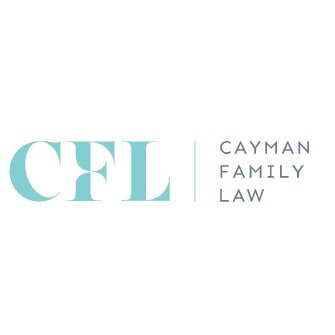Best Divorce & Separation Lawyers in Cayman Islands
Share your needs with us, get contacted by law firms.
Free. Takes 2 min.
Free Guide to Hiring a Family Lawyer
Or refine your search by selecting a city:
List of the best lawyers in Cayman Islands
About Divorce & Separation Law in Cayman Islands
Divorce & Separation in Cayman Islands is governed by the Matrimonial Causes Law, which outlines the legal processes and requirements for ending a marriage or relationship. This law covers aspects such as grounds for divorce, property division, child custody, and spousal support.
Why You May Need a Lawyer
You may need a lawyer for Divorce & Separation in Cayman Islands if you are facing a complex legal situation involving child custody, division of assets, or if your spouse is contesting the divorce. A lawyer can provide legal advice, help navigate the legal process, and advocate for your rights.
Local Laws Overview
Key aspects of Cayman Islands' divorce laws include a mandatory waiting period of one year before a divorce can be finalized, grounds for divorce such as adultery or unreasonable behavior, and the principle of "fairness" in property division and financial settlements.
Frequently Asked Questions
Q: What are the grounds for divorce in Cayman Islands?
A: The grounds for divorce in Cayman Islands include adultery, unreasonable behavior, and living apart for at least one year.
Q: How is child custody determined in Cayman Islands?
A: Child custody is determined based on the best interests of the child, taking into account factors such as parental relationship, stability, and the child's wishes.
Q: How is property divided in a divorce in Cayman Islands?
A: Property division is based on the principle of fairness, taking into account factors such as financial contributions, needs of both parties, and any children involved.
Q: Can I get spousal support in Cayman Islands?
A: Spousal support, also known as maintenance, may be awarded based on the financial needs of the recipient spouse and the other spouse's ability to pay.
Q: Do I need to hire a lawyer for my divorce in Cayman Islands?
A: While it is not mandatory to hire a lawyer, having legal representation can help ensure your rights are protected and the legal process is navigated smoothly.
Q: How long does a divorce take in Cayman Islands?
A: The timeframe for a divorce in Cayman Islands can vary depending on factors such as whether the divorce is contested, but typically takes around 6-12 months.
Q: Can I file for divorce if my spouse lives in another country?
A: Yes, you can file for divorce in Cayman Islands even if your spouse lives in another country, as long as you meet the residency requirements.
Q: What are the residency requirements for divorce in Cayman Islands?
A: To file for divorce in Cayman Islands, either you or your spouse must have been living in the country for at least one year prior to filing for divorce.
Q: Can I change my name after divorce in Cayman Islands?
A: Yes, you can apply to change your name back to your maiden name after divorce if you wish to do so.
Q: What should I do if my spouse is not cooperating in the divorce process?
A: If your spouse is not cooperating, you may need to seek legal advice and potentially take legal action to move the divorce process forward.
Additional Resources
For more information on divorce and separation in Cayman Islands, you can contact the Family Court, the Cayman Islands Legal Practitioners Association, or seek advice from a qualified family law attorney.
Next Steps
If you need legal assistance for Divorce & Separation in Cayman Islands, the first step is to consult with a family law attorney who can provide guidance on your rights and options. Be prepared to gather any relevant documentation and information about your situation to present to your lawyer.
Lawzana helps you find the best lawyers and law firms in Cayman Islands through a curated and pre-screened list of qualified legal professionals. Our platform offers rankings and detailed profiles of attorneys and law firms, allowing you to compare based on practice areas, including Divorce & Separation, experience, and client feedback.
Each profile includes a description of the firm's areas of practice, client reviews, team members and partners, year of establishment, spoken languages, office locations, contact information, social media presence, and any published articles or resources. Most firms on our platform speak English and are experienced in both local and international legal matters.
Get a quote from top-rated law firms in Cayman Islands — quickly, securely, and without unnecessary hassle.
Disclaimer:
The information provided on this page is for general informational purposes only and does not constitute legal advice. While we strive to ensure the accuracy and relevance of the content, legal information may change over time, and interpretations of the law can vary. You should always consult with a qualified legal professional for advice specific to your situation.
We disclaim all liability for actions taken or not taken based on the content of this page. If you believe any information is incorrect or outdated, please contact us, and we will review and update it where appropriate.
Browse divorce & separation law firms by city in Cayman Islands
Refine your search by selecting a city.
















